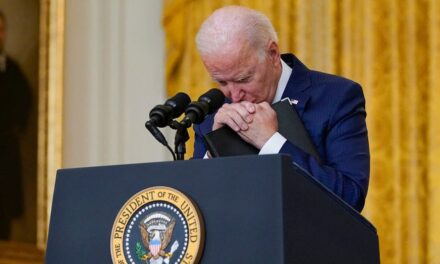Name recognition among young conservatives may come with varying degrees of acclaim, but one figure that has consistently shone brightly in the eyes of this demographic is JD Vance. Renowned conservative activist Charlie Kirk has recently gone on record to highlight Vance’s significance as a source of inspiration for young members of the GOP. Kirk’s sentiments come during a time when he stresses that the Republican Party must step up and fulfill its commitments to voters.
Charlie Kirk, the founder of the conservative youth organization Turning Point USA, has taken a firm stance advocating for the engagement of young people in politics. In an increasingly complex landscape of American society, he identifies the need for influential leaders who can chart a course for future generations of conservatives. He has gradually turned his gaze toward Vance, who gained national prominence through his memoir, “Hillbilly Elegy,” and has recently served as a U.S. Senator from Ohio.
Kirk’s admiration for Vance comes as the Republican Party finds itself at a crossroads. The GOP has been plagued by a growing sense of disillusionment among its base, especially younger voters who are demanding a clear direction and tangible outcomes from their elected leaders. Kirk believes that Vance embodies the ideals and principles that resonate deeply with the aspirations of young conservatives.
“JD Vance is a guiding light for our movement,” Kirk expressed during a recent engagement. His praise underscores Vance’s ability to articulate the values and beliefs that many young conservatives hold dear. As social issues, economic policies, and the role of government come increasingly into focus, Kirk maintains that Vance serves as an embodiment of the possibilities that arise when convictions turn into political action.
In a political climate marked by polarization and discontent, Kirk’s elevation of Vance’s role is notable. Kirk’s comments reflect a growing desire among young conservatives for leaders who can address the pressing challenges of the moment without compromising their core values. He speaks to a generation that is weary of empty promises and eager for change that resonates on a personal level.
However, Kirk does not shy away from the challenges that lie ahead for the Republican Party. He pointedly noted that fulfilling the promises made to voters is paramount to regaining faith in the party’s leadership. “It’s one thing to be an inspiration, but we need action that matches the rhetoric,” he stated, emphasizing the importance of accountability in political discourse.
Kirk’s call to action is directed not just at elected officials but also at the party apparatus itself. Young voters, he argues, are looking for a party that genuinely represents their interests and values, rather than one that merely aggregates power. The emphasis here is on the necessity for real and demonstrable change that aligns with the conservative principles that Vance personifies.
At the heart of Kirk’s arguments lies the pursuit of relevance among younger voters, many of whom face economic challenges and cultural dilemmas that are distinctly different from those of older generations. Conservative ideals must be paired with modern solutions, or they risk becoming obsolete. Vance’s rise can, in this vein, be seen as a potential model for how the GOP might re-engage with young voters.
The relationship between young voters and Republican leadership has been complicated. Many young conservatives are looking for a politics that aligns with their vision of nationalism, economic reform, and culturally conservative values. Kirk’s endorsement of Vance aligns with a broader desire among youth to reclaim their narrative and establish a platform that resonates with their experiences.
In recent years, social media and rapid communication have made it easier for young people to engage in political discourse. It allows them to share their thoughts, rally support, or even challenge established beliefs. Kirk recognizes this environment as a significant opportunity for growing conservative thought among youth, and figures like Vance serve as crucial conduits in this process.
In regard to addressing the issues that matter most, Kirk is vocal about the economic uncertainties many young conservatives face. From student loans to job security, these economic pressures affect the political inclinations of the younger demographic. He argued that solutions offered by Republican leaders should directly tackle these everyday struggles rather than abstract ideological discussions.
Vance’s personal journey—from a challenging upbringing in Ohio to becoming a U.S. Senator—resonates deeply with many young people who feel adrift in today’s economy. Kirk highlights this aspect, explaining that Vance’s life story is not just inspiring but also reflective of the broader narrative of aspiration and resilience that many young conservatives share.
The dynamic surrounding the Republican Party is continually evolving. While Kirk acknowledges that Vance’s example stands as a beacon, he emphasizes that real change requires action. The rhetoric supporting youth issues must be transformed into actionable policies, or the Republican Party risks losing a generation that feels unheard and sidelined.
The future of the GOP, particularly with young conservatives, hinges on its ability to adapt and respond to emerging challenges. Kirk’s perspective signifies that influential voices like Vance should not only inspire but also strategically spearhead initiatives that can bridge the gap between expectations and delivery.
Looking ahead, the dialogue among young conservatives is likely to trend toward a deeper understanding of how the Republican Party can effectively serve its constituents. By examining leaders like JD Vance through a pragmatic lens, Kirk contends that the GOP can revitalize its image and re-establish itself as a force for positive change. Vance symbolizes both hope and the possibility of a brighter future for the party when matched with accountability and action.
As the political landscape continues to evolve, maintaining a connection with young voters will be crucial. Kirk’s vocal support of Vance and the call for real-world action highlight a significant shift and focus that could shape the future of conservative politics in America. This alignment of inspiration and accountability is what advocates believe is necessary to forge a sustainable and engaged youthful base for the Republican Party.
Ultimately, for Charlie Kirk, the message is clear: youthful inspiration necessitates delivering on promises. With leaders like JD Vance in framework, the potential path forward can be forged by connecting with the values that resonate while ensuring accountability and action are never far behind.
































